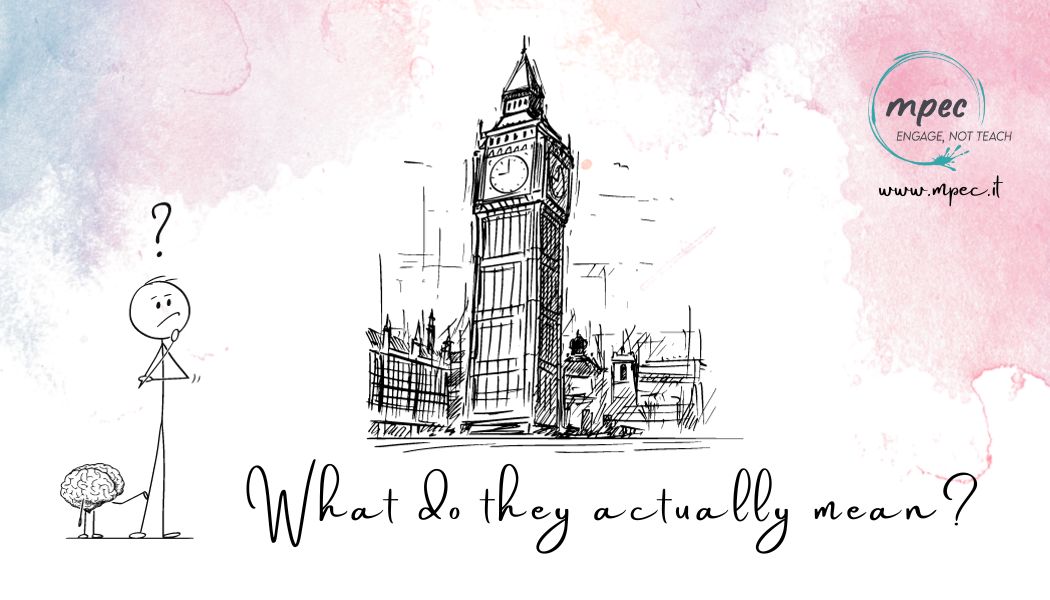In the world of British business communication, the art of being indirect is akin to a social dance. Here, ‘no’ is often cloaked in layers of politeness, ambiguity, and understatements. It can be a cryptic maze for ESL (English as a Second Language) Business English students, where decoding the hidden meanings becomes a skill crucial for navigating the workplace effectively.
Prepared with love by My Personal English Coach, December, 2023
Understanding the Understated “No”
Imagine sitting in a meeting and suggesting a bold new strategy. A British colleague responds with, “That’s a very brave proposal.” You might walk away thinking they admire your courage, but what if I told you that in the intricate code of British English, your colleague may actually be questioning the sanity of your idea?
This is the nuanced world of British business communication, where directness is often swapped for diplomacy, and outright disagreement is masked by seemingly innocuous phrases. So, how does one understand when a ‘yes’ is actually a ‘no’, or when ‘quite good’ isn’t quite good at all?
The Polite Refusal
Let’s decode this together. When a British manager says “I hear what you say,” an ESL learner might rejoice at being understood. But hold on! This could well mean “I disagree and do not want to discuss it further.” The polite front holds a firm, if not final, refusal.
And when you’re told “I’ll bear it in mind,” instead of taking comfort that your idea will be considered, it might be best to assume it’s been gently shelved, possibly forever.
The Dinner Invitation That Isn’t
Even social niceties can be misleading. “You must come for dinner” often bewilders ESL learners. It sounds like an invitation, but is it? In reality, it’s a polite gesture, not an actual request to start pencilling in a date.
Decoding the Code
For ESL students and professionals, understanding these subtleties is essential. It’s about listening to what is not said, as much as to what is. This includes paying attention to tone, context, and the often-sideways approach to expressing doubt or disagreement.
Resources for Navigating the British Business Labyrinth

To help you master these hidden corridors of communication, consider engaging with resources designed to clarify and educate:
- Podcasts: There are several series dedicated to business English and cross-cultural communication. Episodes often dissect real-life business scenarios, providing context and interpretation for various conversational nuances.
- Books: Works like “Watching the English” by Kate Fox explore the anthropology behind British behaviours, including communication. Similarly, “The Culture Map” by Erin Meyer offers insights into how different cultures handle conflict and agreement.
A Call to Practice
For those looking to sharpen their understanding of British indirectness, consider these steps:
- Active Listening: Engage with British media. Listen not just for words, but for the music behind them – the pitch, the pause, the sigh.
- Role-playing: Practice with peers or mentors. Simulate business scenarios to gain confidence in interpreting and responding appropriately.
- Feedback: Seek out feedback from native speakers. They can provide invaluable insights into the subtleties of their language.
Get In Touch To Discuss More Tailor-Made Steps You Can Take
For ESL Business English students, the British way of communication can be perplexing. But fear not! With keen observation, a bit of study, and a good dose of practice, you’ll soon learn to navigate these waters like a seasoned sailor, where every ‘perhaps’ might mean ‘no’, and every ‘interesting’ could be a polite escape route. Dive into the resources available, stay curious, and engage fully in the learning process – your cultural and linguistic fluency is just on the horizon.
#BusinessEnglish #ESL #BritishBusinessCommunication #LearnEnglish #EnglishForBusiness #CrossCulturalCommunication #EnglishLanguageLearning #UKBusinessEtiquette #EnglishVocabulary #EffectiveCommunication #BusinessEnglishTips #AdvancedEnglish #EnglishPhrases #IndirectCommunication #EnglishFluency #ProfessionalEnglish #CorporateCommunication #EnglishLearning #InternationalBusiness #EnglishStudy #BusinessLanguage #EnglishSpeaking #LanguageSkills #WorkplaceEnglish #CommunicationSkill
#IngleseCommerciale #ImparareInglese #ComunicazioneBritannica #ESLItalia #InglesePerAffari #ComunicazioneInterculturale #ApprendimentoInglese #BusinessUK #VocabolarioInglese #ComunicazioneEfficace #ConsigliIngleseBusiness #IngleseAvanzato #FrasiInglese #ComunicazioneIndiretta #FluenzaInglese #IngleseProfessionale #ComunicazioneAziendale #StudioInglese #AffariInternazionali #StudioDellaLinguaInglese #LinguaBusiness #ParlareInglese #AbilitàLinguistiche #IngleseLavoro #AbilitàComunicative





